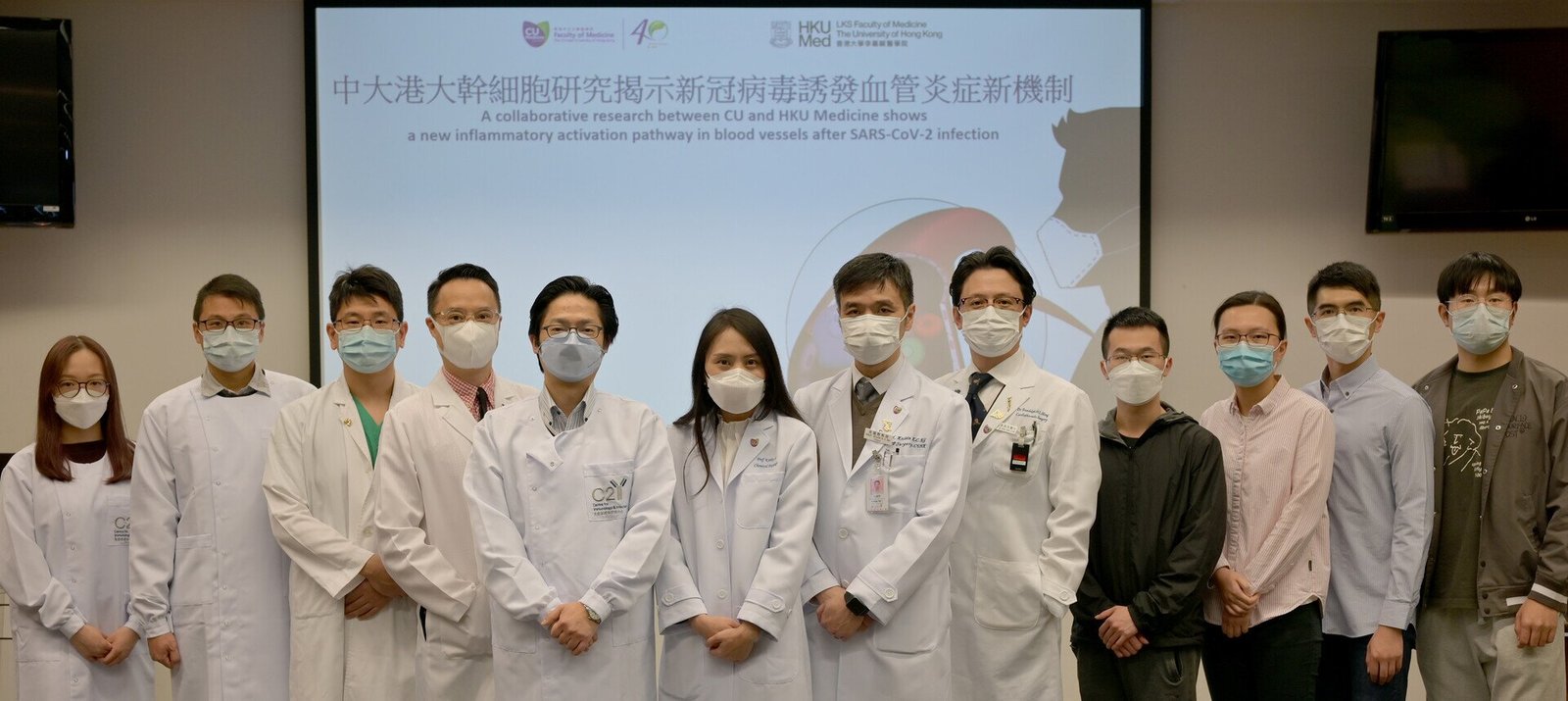
image credit- CUHK
A study led by The Chinese University of Hong Kong's (CUHK) Faculty of Medicine (CU Medicine) and the LKS Faculty of Medicine, The University of Hong Kong (HKUMed) provides new insight into how coronavirus triggers severe inflammation in human blood vessels.
They discovered that SARS-CoV-2 can induce endothelial inflammation through activation of a unique cell surface receptor, toll-like receptor (TLR) 4, without entering the host cell.
In the search for medications for COVID-19, scientists have given much attention to a specific protein, receptor ACE2, which provides an entry point for SARS-CoV-2 to infect human endothelial cells, the innermost layer of a blood vessel. This process has been generally acknowledged to trigger hyperinflammation, blood clotting and thrombosis in severe COVID-19 patients.
However, researchers from CU Medicine and HKUMed provide a contrary view after carefully studying the expression of ACE2. They found that adult and fetal endothelial cells derived from humans rarely express ACE2 on the cell surface, indicating that viral entry through ACE2 may not be the main cause of endothelial inflammation.
Furthermore, by analysing the genome of circulating endothelial cells collected from mild and severe COVID-19 patients at a single-cell resolution, the study further reveals that circulating endothelial cells of these patients display activated gene signatures of the TLR4 signaling pathway.




